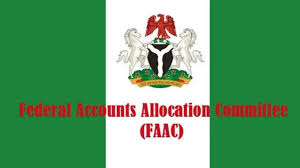Nigeria’s three tiers of government Federal, State, and Local Government Councils (LGCs) have received a combined allocation of N1.578 trillion from the total N2.411 trillion revenue generated in March 2025, according to the latest Federation Accounts Allocation Committee (FAAC) report. The Federal Government secured the lion’s share with N615.11 billion, states received N511.79 billion, and LGCs were allocated N385.10 billion, while oil-producing states got N66.77 billion as 13% derivation payments to mitigate environmental and economic losses from crude exploration.
A detailed breakdown reveals that the distributable N1.578 trillion was sourced from N1.122 trillion in statutory revenue (including oil and gas proceeds), N283.45 billion from Value Added Tax (VAT), N15.33 billion from electronic money transfer levies (EMTL), and N157.21 billion from exchange rate differentials. After deducting N833 billion for collection costs, transfers, and refunds, the net distributable amount reflected a N176.32 billion month-on-month increase from February 2025’s earnings, attributed to rising global oil prices and enhanced tax compliance under the Federal Inland Revenue Service’s (FIRS) automation drive.
The revenue boost comes amid Nigeria’s aggressive economic reforms, including the Central Bank’s managed floatation of the naira, which stabilized forex liquidity, and the removal of fuel subsidies, freeing up funds for critical sectors. However, state governors, particularly from oil-rich regions, criticized the 13% derivation formula as “grossly inadequate” for addressing oil spillage, pollution, and unemployment in the Niger Delta. “Our people bear the brunt of oil exploitation but see little benefit. This formula must be revised to reflect current realities,” said Delta State’s Commissioner for Finance.
With inflation at 28% and unemployment soaring to 33%, the allocations have reignited debates over fiscal federalism. Economists warn that LGCs which rely on states for funding remain hamstrung in delivering grassroots projects, perpetuating poverty in rural areas. Meanwhile, Lagos and Rivers states renewed calls for higher VAT shares, citing their roles as Nigeria’s economic hubs.
As FAAC prepares April 2025 disbursements, analysts urge governments to prioritize debt management and social investments. “Allocations must address hunger and insecurity, not just political expenditures,” warned Dr. Ngozi Adeleke, an Abuja-based economist. With Nigeria’s debt servicing costs hitting N348.9 billion in Q1 2025, the March revenue windfall offers temporary relief but underscores the urgency of diversifying the economy beyond oil.
While the March 2025 revenue signals short-term fiscal respite, Nigeria’s long-term stability hinges on constitutional reforms to empower LGCs, revise derivation principles, and channel oil windfalls into agriculture, tech, and manufacturing to curb dependency on volatile crude markets.

